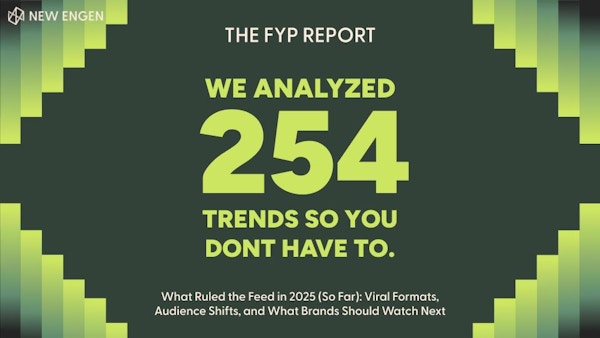Insights that drive impact—rooted in research, supported by data, and made to fuel brand growth.

Trends
12.29.25
January 2026 TikTok Trends: Viral Moments You Need to Know

Guides
Trends
TikTok
12.09.25
Stay Ahead of TikTok: Monthly Trend Report for Brands

Trends
Guides
TikTok
12.04.25
The FYP Report 2025: Your Complete TikTok Year in Review

POV
12.01.25
Where to Spend: Smarter Paid Media & Retail Media Strategy for Holiday 2025

POV
Content & Creative
12.01.25
The Holiday Creative Playbook: What Actually Works in 2025

Trends
12.01.25
December 2025 TikTok Trends: Viral Moments You Need to Know

Guides
12.01.25
Brand Building: Expanding Beyond Performance

For Creators
Trends
10.27.25
November 2025 TikTok Trends: Viral Moments You Need to Know

Guides
10.22.25
2025 Holiday Guide for Brands & Marketing Leaders

For Creators
Trends
09.30.25
October 2025 TikTok Trends: Viral Moments You Need to Know

POV
08.27.25
Beyond Performance: Why the Future of Activewear Belongs to Everyday Athletes

For Creators
Trends
08.25.25
